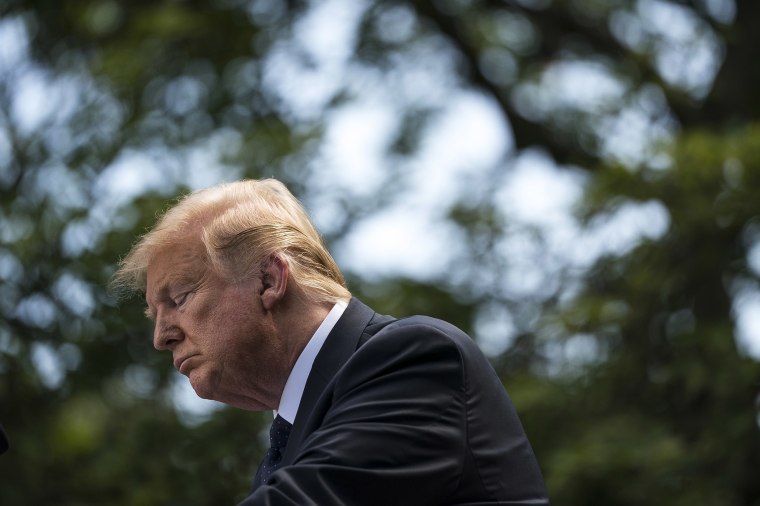Donald Trump sat down with the Christian Broadcasting Network this week, and fielded a question that seemed like an easy one: David Brody asked the president to point to something compassionate the Republican administration has done that might impress evangelical voters. Trump gave a rambling, 215-word answer -- which touched on 401Ks and Joe Biden's basement -- none of which came close to answering the question.
It was as if, in a rather literal sense, the president didn't know what "compassion" meant.
A few days later, Trump sat down with Fox News' Sean Hannity, who asked the president to talk about his priorities for a second term. According to the transcript, this was the Republican's full answer:
"Well, one of the things that will be really great -- you know, the word experience is still good. I always say talent is more important than experience, I've always said that. But the word experience is a very important word. It's a very important meaning. I never did this before. I never slept over in Washington. I was in Washington, I think, 17 times, all of a sudden, I'm president of the United States. You know the story, I'm riding down Pennsylvania Avenue with our first lady and I say, this is great. But I didn't know very many people in Washington. It wasn't my thing. I was from Manhattan, from New York. Now, I know everybody and I have great people in the administration. You make some mistakes like, you know, an idiot like Bolton. All he wanted to do was drop bombs on everybody. You don't have to drop bombs on everybody. You don't have to kill people."
Note, the question was, "What are your top priority items for a second term?" In response, Trump didn't point to any priorities.
And all things considered, that wasn't altogether surprising. Trump delivered a campaign re-launch speech last weekend, and he neglected to say what he intended to do if rewarded with a second term. The president's campaign website does not feature an issues page listing any plans or blueprints for the future.
Even the Republican Party's 2020 platform is just the 2016 platform recycled.
In August 1979, then-Sen. Ted Kennedy (D-Mass.) was gearing up to run for president and he was expected to do quite well. His plans ran into trouble, however, when CBS News' Roger Mudd sat down with the senator and asked, "Why do you want to be president?"
Kennedy struggled mightily to answer. The damage to his candidacy was considerable: the public saw someone who wanted the office, but had trouble saying why.
Forty-one years later, Donald Trump -- with no vision, no interest in governing, no platform, no policy agenda, no ideas, and little meaningful understanding of events unfolding around him -- was asked about his priorities for the next four years.
As we discussed the other day, at this point in the campaign, we'd ideally see a battle of ideas, with the major-party candidates critiquing each other's agendas, highlighting their flaws, and promising a better way. Except in 2020, that's effectively impossible: Trump hasn't presented any ideas to assess.
It's not an accident; it's the result of a choice. Governing parties present platforms to voters, in part so the electorate knows what they consider important, and in part so that winning candidates can claim a mandate in the event of a victory.
Post-policy parties, however, don't bother.
